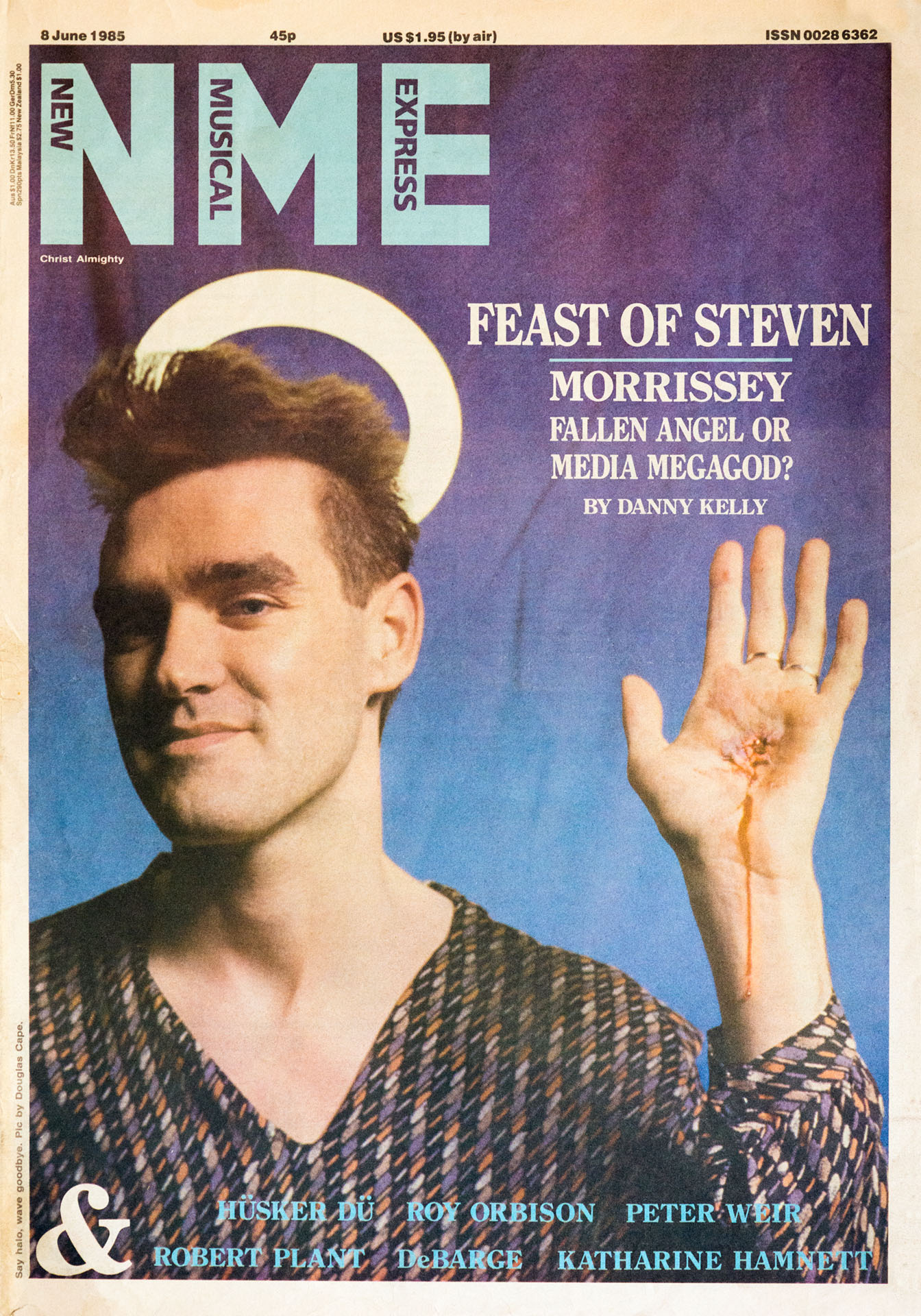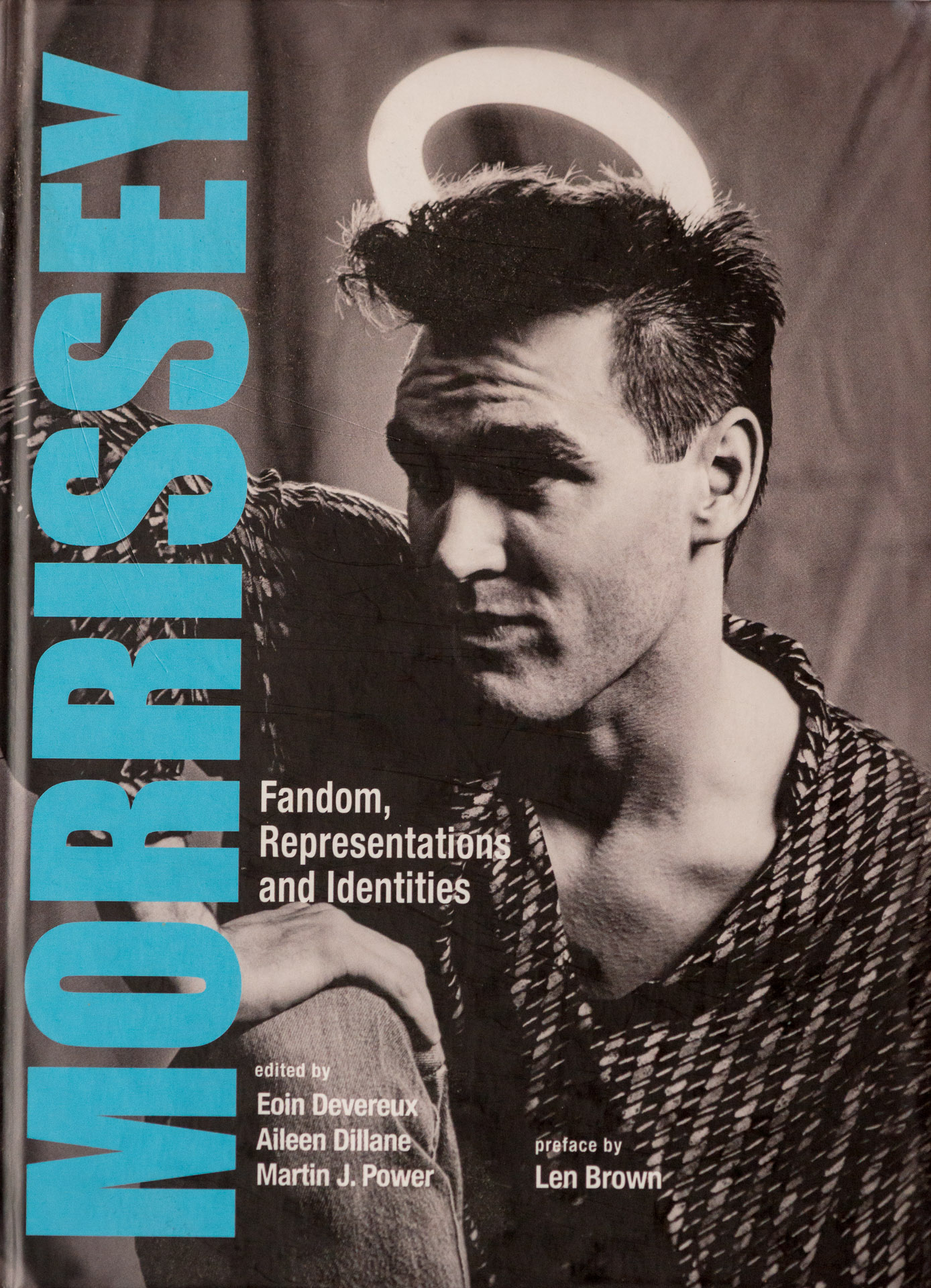This cover shoot in 1985 was the apotheosis of my burgeoning photographic career. From the early 70s I read the New Musical Express religiously every week and even completed the crossword. Meanwhile The Smiths had become my favourite indie group, so the combination was everything I had ever wished for, this was as good as it got.
Commissioned by Tony Stewart the deputy editor (who I later unfortunately followed to the ailing Sounds) I drove the journalist Danny Kelly up to The Hacienda in Manchester where the shoot took place. I had done a fair amount of preparation, constructing a halo from a fluorescent ring lamp and preparing some gory make-up. I had no assistant and did all the set-up and prosthetics myself. Morrissey was as sweet as pie and liked the idea of the stigmata. He only balked when I wanted to use the actual club for some background shots, saying that he’d already been photographed there. Still it all went very well, but I wasn’t allowed to attend his interview with Danny and spent several hours hanging around the gothic Midland Hotel.
The shot chosen for the cover was not my favourite, but I guess it fitted their layout best. They did use a classic black and white shot with the interview, later featured on the cover of Morrissey: Fandom, Representations and Identities.
Back in the 70s the New Musical Express was a wide church, encompassing all contemporary music including folk, jazz and even modern classical. I discovered Philip Glass, Jan Garbarek and the Art Ensemble of Chicago in their pages. They would feature campaigning articles about Red Wedge and occasional specials such as a Youth Suicide issue. The writing was varied, iconoclastic and opinionated, notable favourites being Richard Williams, Barney Hoskyns, Ian Penman, Nick Kent, Tony Parsons and even Charles Shaar Murray. By turns humorous and political the NME became the voice of alternative youth, there was no-one else with their finger on the pulse. In addition they produced a series of budget cassettes starting with C81, which championed their diverse musical influences.
The NME slowly headed into a dead end street of their own making, forgetting their history and the wilder shores of music practice. The writing lost all ambition and pretension, there was only so much you could say about guitar bands amid the narrow confines of Britpop. In the 70s you read the NME to discover new music and new attitudes, not to catch up on the gossip in the Sun’s Bizarre column. The world still needs a daring and authoritative music magazine, there is The Wire, but what do they know about pop music?
R.I.P. NME ‡


